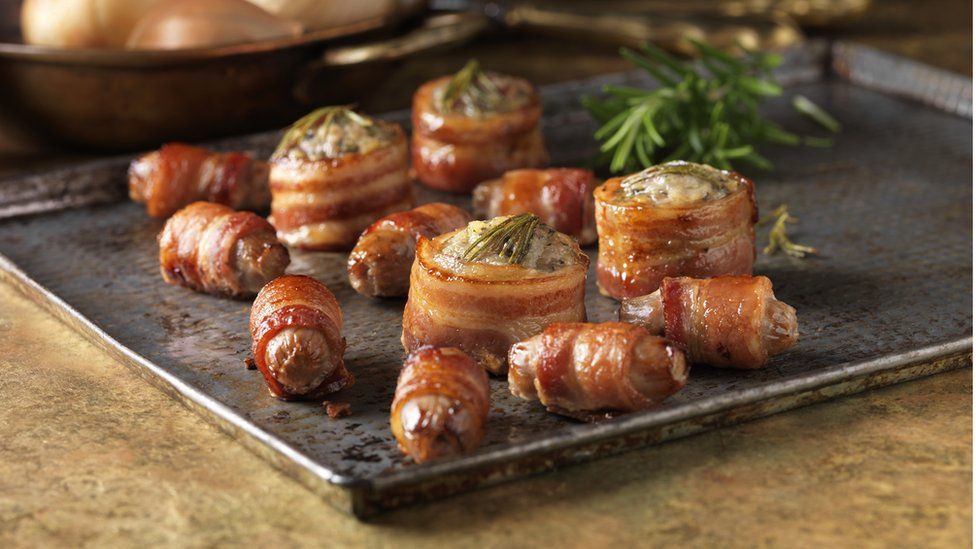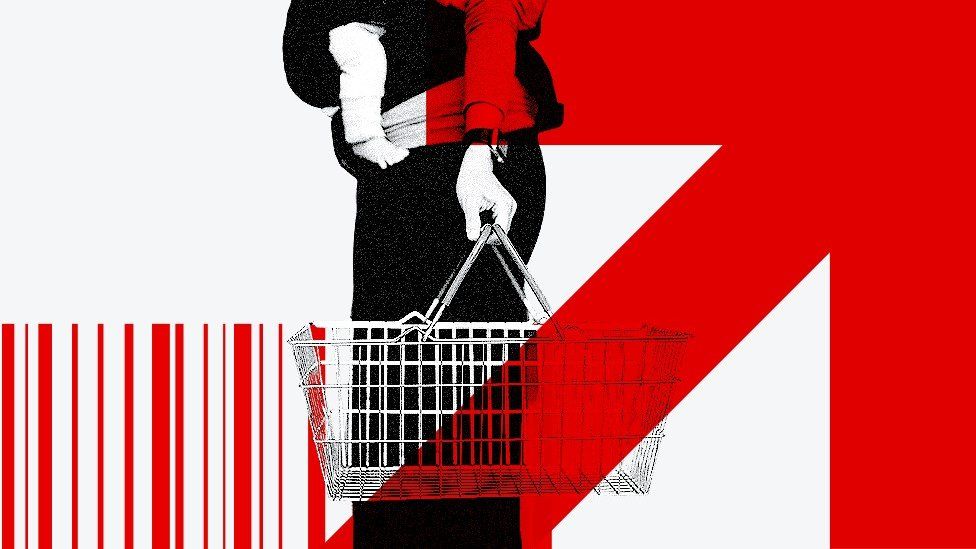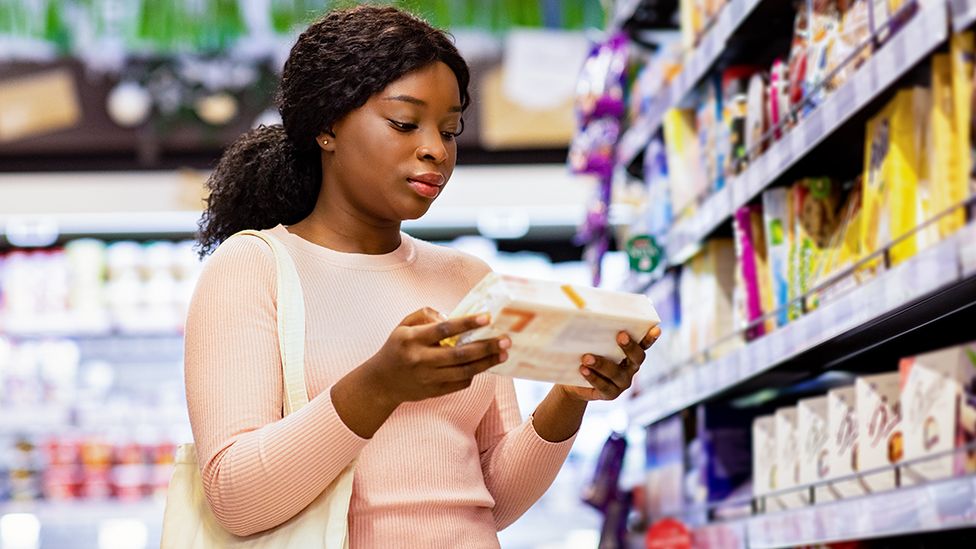
Sainsbury’s sold record numbers of pigs in blankets, mince pies and sparkling wine, over the festive period, it has said.
Festive food sales helped to boost overall sales over Christmas, at the UK’s second biggest supermarket chain.
Grocery sales were up 8.6% over the six weeks to 6 January, offsetting sharp drops in its Argos and clothing sales.
Sainsbury’s said its food sales beat competitors over the period as it strives to take on discounters.
It has been locked in a battle with German retailers Aldi and Lidl as it tries to entice cash-strapped customers through its doors.
Sainsburys said many customers had used its Nectar loyalty card scheme for their festive shopping, saving £16 on an £80 Christmas shop by using Nectar cards.
Supermarkets including Tesco have been pushing customers to use loyalty cards by offering promotions, but consumer group Which? warned last year that offers may not be the bargains they appear.
People also treated themselves to products in Sainsbury’s Taste the Difference premium own brand range, with sales growing ahead of the market.
In Christmas week, Sainsbury’s also sold record volumes of premium cheese.
The supermarket chain said that using artificial intelligence had helped it to keep shelves stocked, and credited its relationships with suppliers and customer service for a strong Christmas performance.
Customers piling up the food in shopping trollies helped to offset a weaker showing by Argos, where sales fell more than 4%.
Sainsbury’s said this was compared to an “exceptional” performance last year, where the retailer “benefitted significantly” from a postal strike and strong demand for energy saving products.
It added that Argos had done well in Black Friday sales prior to Christmas.
- Five hacks to help save money on your food shop
- Supermarkets’ busy Christmas boosted by promotions
- Aldi and Lidl claim ‘best ever’ Christmas sales
Last year, supermarkets were investigated by the Competition and Markets Authority after concerns that customers were overpaying for food and fuel.
The watchdog found that higher food costs had not been passed on in full to consumers and that people were shopping around to get the best deals.
But it said that customers had been overpaying for fuel.
In Sainsbury’s third quarter – the 16 weeks to 6 January – like-for-like sales grew 7.4% and total sales were up 6.5%, excluding fuel.
Including fuel, like-for-like sales were up 5.3%.
This sales growth was ahead of annual inflation in November, which dropped to 3.9%, the lowest for more than two years.
Sophie Lund-Yates, lead equity analyst at Hargreaves Lansdown, said that the supermarket giant had “put in an enormous amount of work to improve its pricing and product propositions, and this has allowed it to hit the consumer sweet spot”.
“Crucially, the number of items being bought is proving resilient, so sales momentum isn’t purely being driven by prices,” she added.
Meanwhile, bakery products retailer Greggs said 2023 fourth quarter sales were up 9.4%, despite lower inflation.
It was helped by shops opening for more hours, and a partnership with delivery platform Uber Eats, it said.
Related Topics
- Companies
- Christmas
- Retailing
- Sainsbury’s
- Supermarkets
-
Five hacks to help save money on your food shop
-
29 November 2023

-
-
Food price rises slow to lowest in more than a year
-
7 November 2023

-





